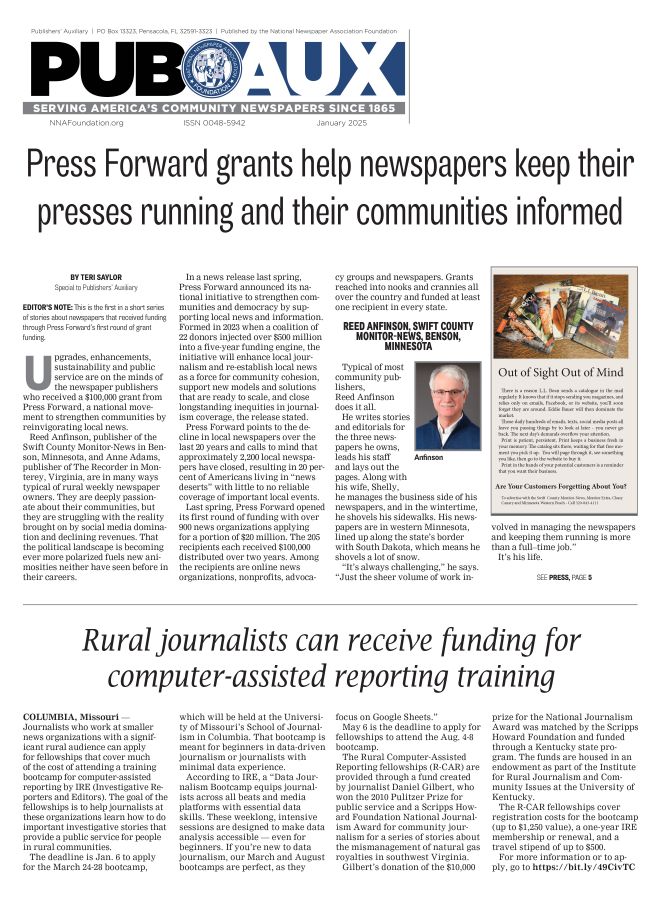We have assembled, petitioned, spoken and even prayed: So now vote!
Oct 28, 2016
By Gene Policinski
Inside the First Amendment
There are but a few hyper-politically charged days — now a mercifully few — remaining before the 2016 general elections.
Over nearly two years, the nation has been through an exhausting process of sorting through possible candidates, selecting nominees and now consider the final few — and lest we forget, for offices high and low, local and state and national.
In many ways, such a season means glory day, for our First Amendment freedoms. But first things first, so to speak. Vote on Nov. 8. Voting is the ultimate result of the constitutional protections of our core freedoms expressed in the First Amendment: the governed selecting those who, until the next election, are charged with governing on our behalf.
There is a reason we protect political speech above all other categories: It's one of the essential parts of how our nation works, even when for many, it's effectively "not working." The process remains the envy of the world, which periodically places it in the crosshairs of adversaries who would tear it down, now in ways we have not seen before.
Debate, discussion, disagreement and discourse are the ways we exchange our ideas in the public square — sometimes bitterly and angrily, to be sure. We also know from history that this oft-messy method has, over time, meant a continual renewal of our nation and its values, and improvement of the lives of our fellow citizens.
In more direct First Amendment terms, in about one week, we will decide who responds to our petitions for change. Many of us over these long months of the 2016 presidential race have assembled to make our voices heard — either through actual assemblies and rallies, or through the increasingly common online communities formed by social media. For some, tenets of faith or prayers for divine guidance will help us in deciding for whom to vote.
Through it all the press — with more participants than ever before — has been there to report, record, repeat, reproach or repost what candidates and the public are saying to and about each other.
To the regret of many, it sometimes seems the press has been in the news during this campaign season as often as reporting it.
Witness the latest example. Former U.S. House Speaker Newt Gingrich's emotional criticism of Fox News's Megyn Kelly — and by extension, the news media in general — for being "fascinated with sex" over substantive issues. He immediately paired that, without irony, to an inquiry as to why former president Bill Clinton's name isn't as synonymous with the term "sexual predator" as Gingrich claimed is the case with GOP candidate Donald Trump.
Add in Trump's outright attacks on journalists and news outlets in the harshest terms; the disdain earlier in the campaign from Democratic candidate Hillary Clinton's months-long-gap between press conferences, and criticism in polls and at rallies of the working press; Trump's earlier conflict with Kelly over his post-debate remark about "blood coming out of her wherever;" and his threat to use the presidency to weaken libel laws to make it easier for himself and other public figures to sue journalists and their news organizations.
Nov. 8 election results will — even if it takes a few weeks, thanks to some new version of the infamous "hanging chad" debacle of the 2000 presidential race — generally settle who gets into office.
Not so certain is the path for a free press. With or without Trump's promised assault on defamation law, traditional news organizations continue to shed staff as they face rising costs amid falling revenue. New media attract eyeballs, but for the most part, remained linked to the content produced by the aforementioned mainstream press.
Opinion and talk often substitute for news and information. Over the last 20 years, the once-feared "watchdog on government" has lost more and more "teeth" — and in the case of cable news channels, sometimes seems only to be barking for attention.
Many more than Trump challenged the veracity and motives of major media outlets. The data-dump website called "WikiLeaks" feeds the national daily news diet with alleged leaked private emails from the Clinton campaign amid rumors that it's at least assisted — if not directed — by a hostile Russian government.
Whether it's all of that, or Trump's promise to diminish press protections, or Clinton's expressed intent to reconstitute restrictions on contributions as a form of political speech, the future of free expression seems likely to remain "political" long after this year's ballots are counted — and perhaps, recounted.
Gene Policinski is chief operating officer of the Newseum Institute and senior vice president of the Institute’s First Amendment Center. He can be reached at gpolicinski@newseum.org. Follow him on Twitter: @genefac.







